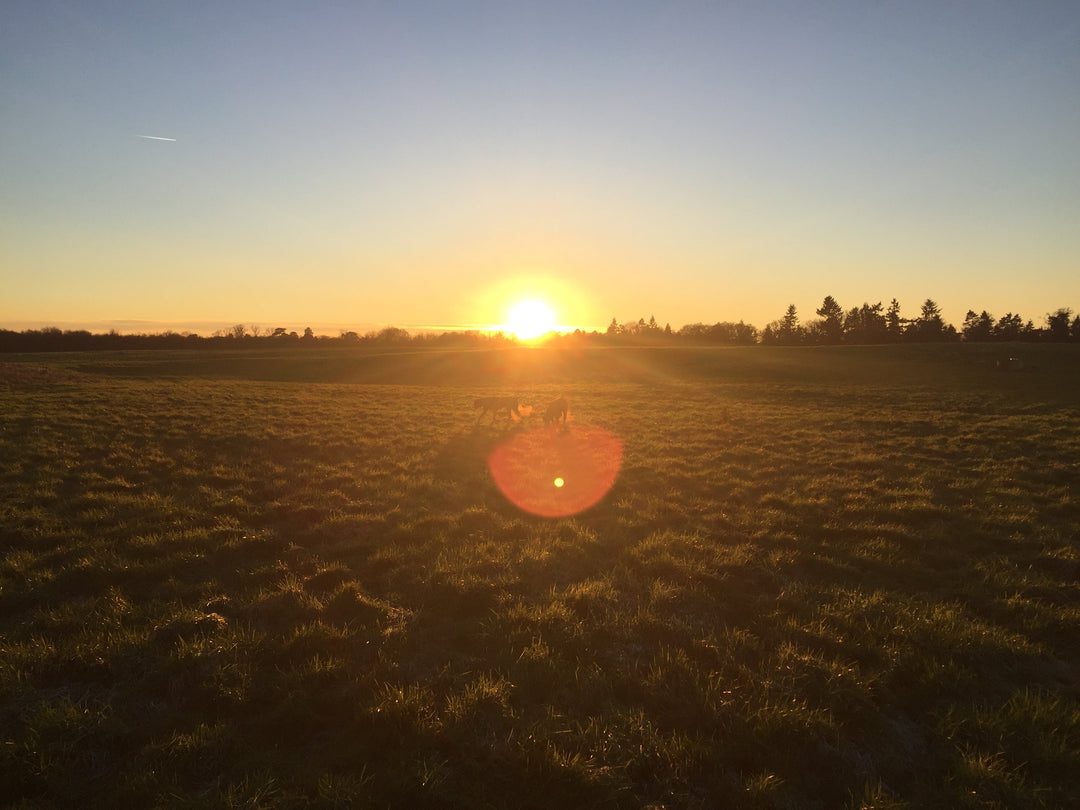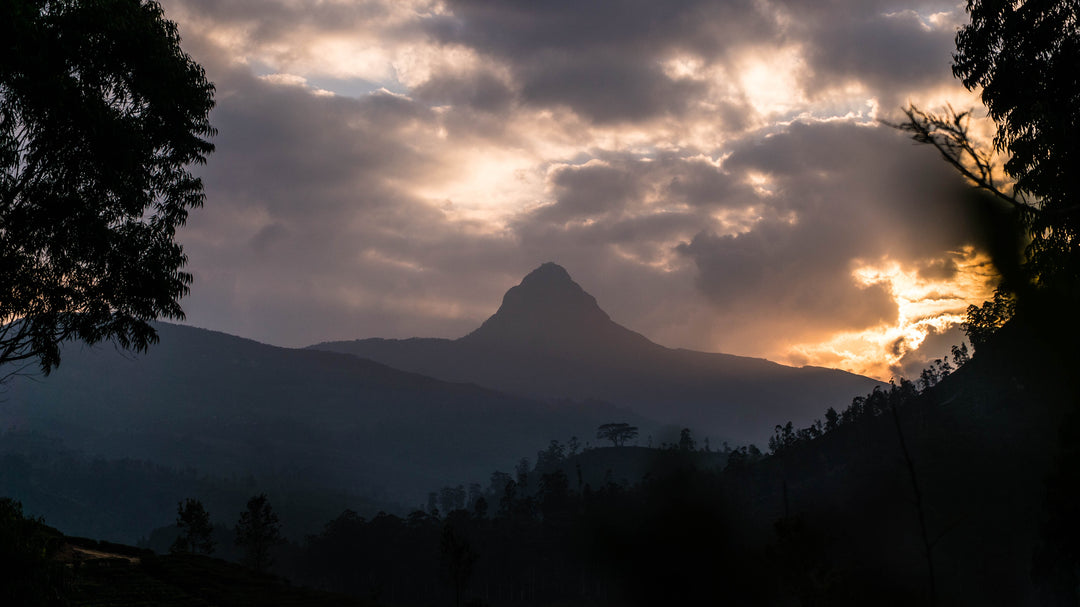How Climate Change Disrupted Sri Lanka’s 2023 Tea Season
I am just back from six weeks in Sri Lanka, and it was both an interesting visit, yet at the same time a disturbing one. I have never seen a season quite like it.
2023 will be known as the season that never was. Why has this happened you may ask? We do not quite know, but the effects of climate change are very visible in the planting districts across Sri Lanka.
In a recent email I described how January and February is when the Western Quality Season starts and when we can see some of the best teas coming from the Western slopes.
December started well with dry conditions dominating. January also started well with a continuation of the dry spell coupled with increasing winds. Then out of nowhere the rains arrived and washed out the season. These aren't the monsoon rains that normally start in late March early April, this was exceptional, unexpected, and not welcome.

Clouds gather in the Maskeliya valley
Normally in January there are bright sunny days, with a light shower in the evening and cool nights. However, this is what happened in reality. In some districts a months worth of rain fell in a matter of days, causing landslides. The closest to home experience for us at PMD Tea, was when a side of Laxapana estate, slipped into the main Dalhousie Road trapping those in the town Dalhousie at the foothills of Adams Peak.
Temperatures across every tea district have risen over the past 20 years resulting in average increasing from 23 to 26 degrees Celsius. Whilst this doesn’t impact high grown tea now, it is affecting the low country where the average temperature has risen from 31 to 34 deg C and this is perilously close to the limits of a tea bush’s ability to photosynthesis. At temperatures above 38 degrees C that stops, and then we have a big problem! Those effects will impact the livelihoods of many small farmers and it will threaten Sri Lanka’s tea industry.
The Tea Research Institute in Talawakelle is working on tea plants that can cope with higher temperatures to secure the future of the industry, but the changes in the way we work and behave must be wider and deeper.

Our recent visit to the Tea Research Institute
At PMD we can play our part. We have moved to using FSC certified materials for our cardboard packaging, re-engineering pack sizes to minimise space and we have also introduced larger pack sizes. But the “greenest” cup of tea that we can all have is that of loose-leaf tea. Small changes like swapping from tea bags or drinking more loose-leaf tea will help protect our planet and those most vulnerable.
Please help to play your part with this global challenge, and mitigate the serious threat to our wonderful island.

Please help to play your part with this global challenge, and mitigate the serious threat to our wonderful island.




